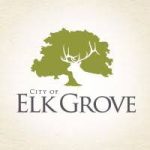SB 1383 brings opportunities to support friends, neighbors and businesses
Every year, 11.2 billion pounds of food are wasted in California while millions of people go hungry. Across the state, Californians feel the intense effects of greenhouse gas emissions through longer fire seasons, flooding, drought, extreme heatwaves and more. The common denominator between these seemingly divergent issues is that both can be mitigated by reducing organic waste disposal. Senate Bill 1383—with its goal of reducing organic waste disposal 75% by 2025—aims to address both of these problems through connected solutions, and the city of Elk Grove is doing its part to successfully implement the landmark law.
“In its inception, 1383 is driving to make our communities healthier, better air quality, better water quality, better use of resources and reducing waste,” says Lisa Coelho, project manager with Abound Food Care and the Capital Food Access Alliance. “How do we close the loop and get another life out of these resources? When it comes to edible food and food recovery, we’re not only looking at reducing waste, but how do we rethink the system in a meaningful way?”
“Collectively, it makes a huge difference.”
Lisa Coelho, Project Manager with Abound Food Care and the Capital Food Access Alliance

Operations Rachel
Parris of Abound
Food Care. Photo
courtesy of Abound
Food Care
The City of Elk Grove is one of seven jurisdictions contributing to the regional efforts of the Capital Food Access Alliance in an effort to reduce food waste and food insecurity in Sacramento County. The regional collaborative provides support to organizations and businesses to develop long-term, sustainable solutions that not only ensure compliance with SB 1383 regulations, but enables communities to better support everyone.
“Our goal is [to let people know] there’s a benefit to participating and it is a good thing. It’s not just this stuffy compliance mandate, you’re actually doing something positive,” says Rachel Parris, director of operations with Abound Food Care. “The homeless population is a small percentage of our food-insecure population; you have students, you have seniors on a fixed income. Getting excess edible food that is wholesome, safe and good to eat to organizations that can then distribute it to those in need in the community or food-insecure people in the community is fantastic.”
Implementing regulations with businesses in mind
Elk Grove, along with all California cities and counties, has been tasked with implementing SB 1383 requirements, including edible food recovery programs. Jurisdictions are responsible for working with local businesses and organizations like food banks to develop a plan to ensure compliance. The plan also ensures donations are made and received in a safe and effective manner for both. While this process can be complicated, the Capital Food Access Alliance focuses on getting everyone on the same page.
“What we’re looking at is to help be a connector,” says Parris. “We’re going to be asking businesses, ‘If you have excess, what does that look like? What kind of foods? When do you need those pick ups?’ Then we’re asking the nonprofits, ‘What type of food do you need? What are you in need of? Where are the gaps for you?’ When those puzzle pieces match up, we make that connection.”
Collaborating with local businesses and recovery organizations like the Elk Grove Food Bank enables the Capital Food Access Alliance to help the city develop strategies and functional program models to bridge those gaps between needs and available resources.
“Almost everyone on my team has food service experience … so when they come into restaurants to talk about how to set up these donation programs, they’re sensitive to operational impacts,” Coelho says. “They’re really experienced in how to tailor this to you.”
A collective effort for the community’s benefit
Reducing the organic waste that wreaks havoc in our landfills and environment by 75% is an ambitious goal, but many hands make light work. Success depends on individual households and businesses, including those in Elk Grove, contributing to the communal effort.
“Collectively, it makes a huge difference. On a small scale, when I’m working on a school program and the kids are doing it, you have elementary school students coming up with their small hands putting tiny scraps into a bin and you’re still collecting a hundred pounds of food every lunch session,” Coelho explains. “If you extrapolate that out across the community, yes, it may only be a little bit for each one of us, but there are a lot of us.”
For more information about organic waste regulations, visit www.elkgrovecity.org/recycling-and-waste/organic-recycling.






























